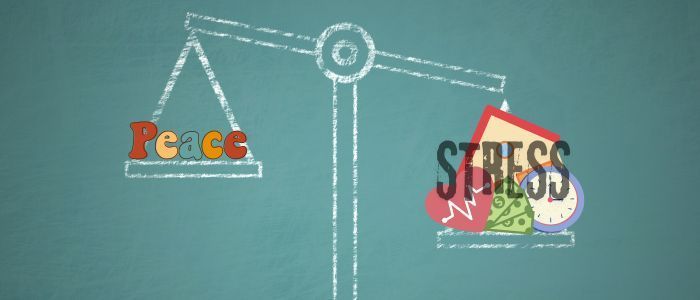Weighing up the stress in your life

Scales for measuring stress
I want you to visualise a pair of scales in your mind’s eye…
Let’s focus on industrial-grade scales for this exercise.
Picture placing a substantial basket onto these scales.
Take a moment to reflect on your life and the specific stressors that affect you.
Stress manifests in various ways and is not limited to the mental and emotional strain we are familiar with.
Types of stress
There are physical stressors such as lack of sleep, hard labour, overexertion or too much exercise, illness and injury to name but a few. Our bodies also have to deal with fumes on busy roads, toxins in our food, water, homes, workplaces, mould exposure, EMFs, noise, excessive heat, dehydration, and on and on.
The mental and emotional stressors like conflict at home or work, a dead-end job, workplace bullying, moving house, grief associated with death or divorce or other significant loss, childhood traumas and maybe just consistently taking too much on.
How about social stressors? A non-existent social life, lack of close friends in your life, peer pressure, or being excluded, targeted or poorly treated in social situations.
What about spiritual stressors? That’s an interesting one! No, I’m not talking about a blocked chakra… how about a lack of meaning and purpose in your life? Or maybe a diagnosis of cancer for you, or a loved one… Why me?
Financial stressors – do I really need to explain this one? The mortgage we are struggling to pay, not being paid what we are worth, a tax debt…
Familial or relational stressors – put your hand up if your family creates stress for you? It could be conflict in a relationship, a “troublesome” child, or differing values.
And finally, vocational or career stressors. What have you experienced in your career? Maybe, not being considered for a position or promotion when you know you are the right person for the job, unrealistic deadlines, too much responsibility and not enough hours in the day, or maybe it’s a toxic culture in your organisation?
The point I’m trying to make is that there are many types of stressors that modern humans face. Above is only a very slim selection. Your physiology AND your psychology will not discriminate between any of them. From an evolutionary psychological point of view, they are all “Toothy the Tiger” in disguise and the same stress response is activated in the body every time you perceive stress or danger.
How much does YOUR stress weigh?
So now that you are dwelling on all the stress you have to contend with, place each one into that basket sitting there on the industrial sized scales. One by one, watch them go in…
What does your stress basket weigh?
How does that feel to see it all there right in front of you? Are you fully giving yourself credit for the amount of stress your body and mind are holding each day?
This “weight” in medicine is called your “allostatic load”. It’s the lump sum burden of all your stressors and the wear and tear it’s having on your body and mind – your health.
Allostasis
Allostasis is the term given to our ability to bring our stress response back down to a healthy baseline – to homeostasis. Achieving allostasis requires an “allostatic skillset” to cultivate a wider window of tolerance, build our resilience to stress. Developing a range of skills to better respond to stress, in combination with actively taking steps to decrease the burden of stress in your life is the way you can protect yourself from the toxic nature of chronic persistent stress.
Skills for stress management
If chronic stress is creating problems in your life and contributing to a health crisis, relationship issues or other serious setbacks, then accessing support from professionals is often needed to turn things around. Counselling and therapy can be beneficial for getting to the core of the reasons why you stress the way you do, and help you develop strategies for setting boundaries, shifting mindset and gaining problem solving skills. A naturopathic approach will also look at lifestyle and diet factors you can adjust, while supporting your body with herbs and nutrients that may be depleted from a long term or intense period of stress.
Breathwork and meditation for stress management
These are two very powerful ways to train your nervous system to return to the rest and digest state, bringing you back to a healthy baseline, or homeostasis more easily. I’ve created a free workshop on breathwork, meditation and nervous system regulation for you to watch and learn ways you can take back control of your body and mind’s response to stress. -
WATCH HERE.
Are you ready to master your nervous system and your ability to respond to life and all its stress in a healthy way?
Let’s talk.
Eddie Enever
Adv.Dip. (Nat)
Eddie's main area of interest is in chronic disease, particularly people with a diagnosis of cancer. After defeating cancer three times, Edward now uses his skills and experience to guide patients through their journey with cancer and other chronic illnesses.








